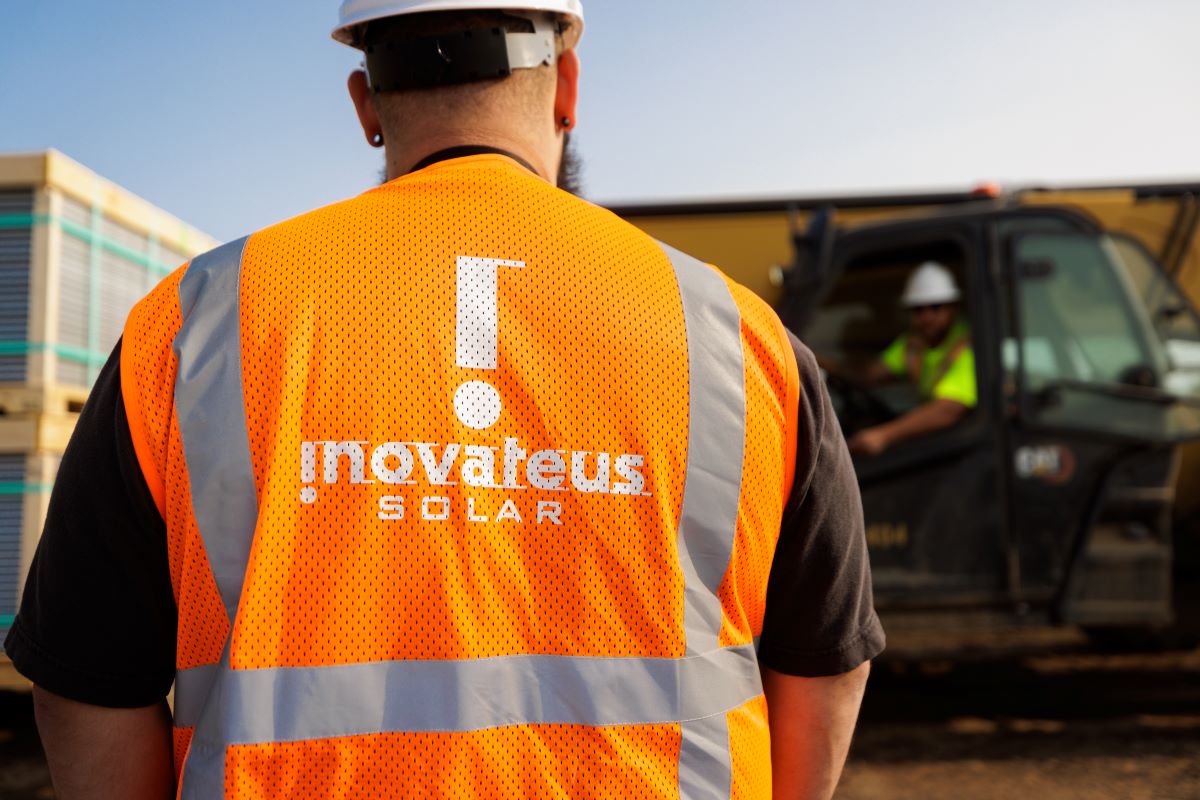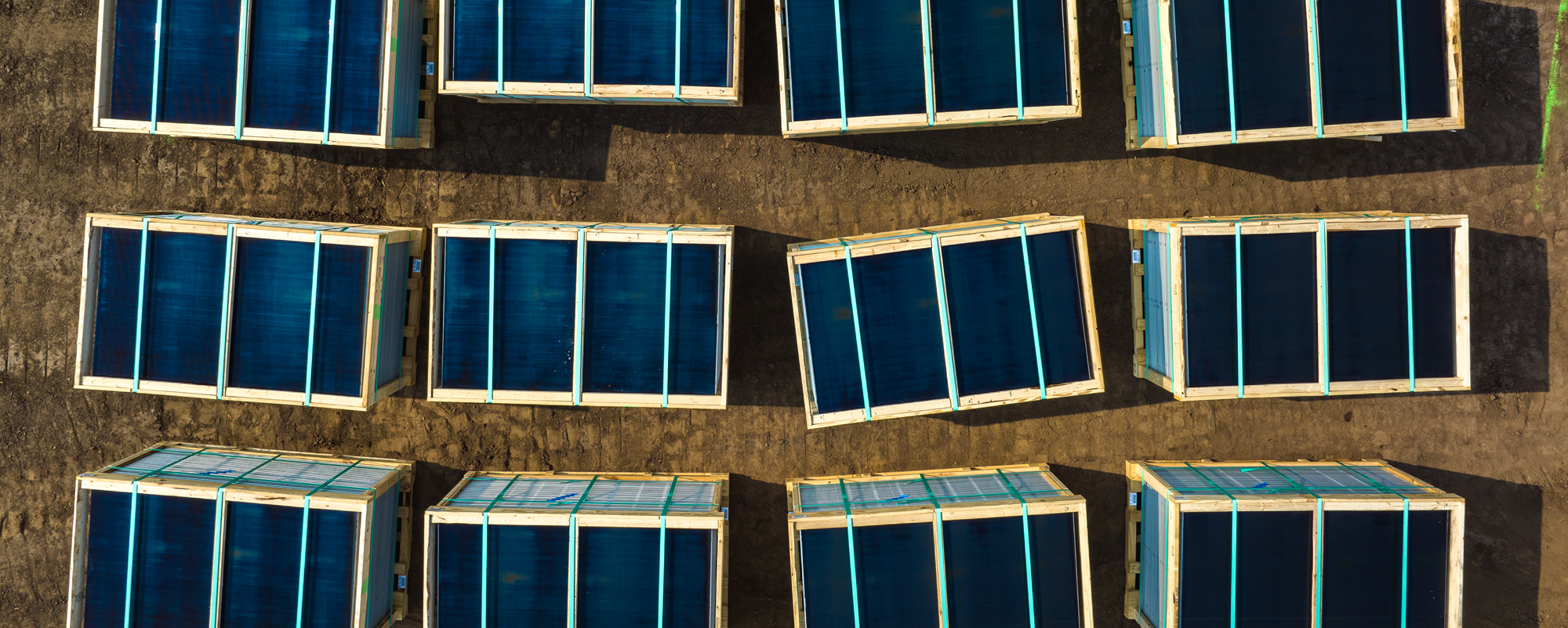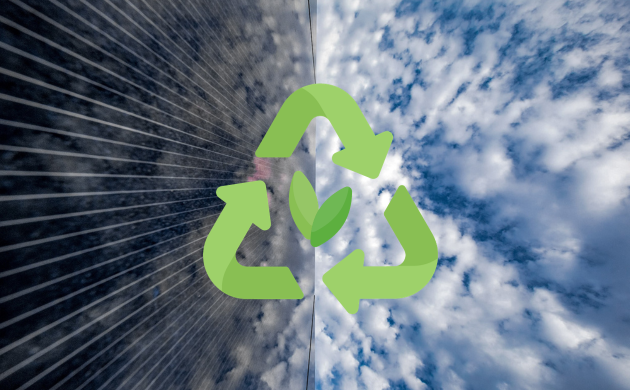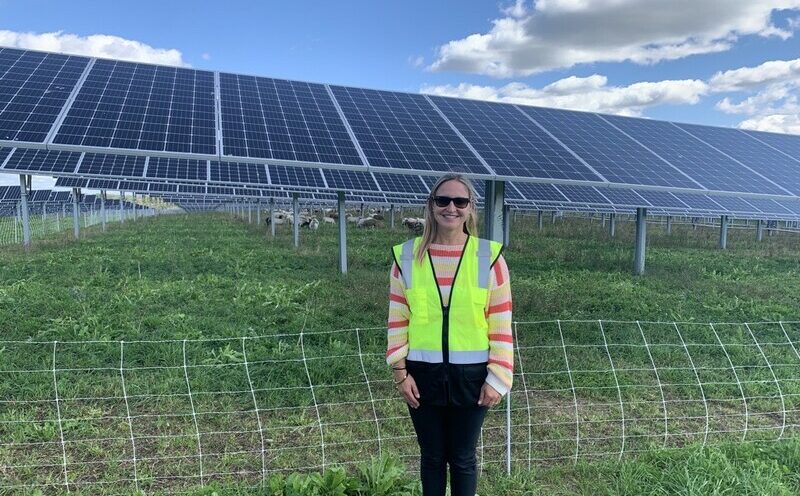Solar recycling case study
Recycling success for Indiana solar construction site
Responsible waste management can help maximize the sustainable benefits of solar. Lightsource bp seeks to improve our own waste footprint by committing to reusing or recycling solar panels, as well as reducing or diverting other waste streams during construction and operations.
By some estimates, as much as 30% of global waste comes from construction and demolition. Though solar projects contribute only a fraction of this total, waste diversion presents an opportunity for the solar industry to help make strides toward a circular economy. Not only can we improve solar’s environmental impact, but we can set an example for the construction industry at large.
Lightsource bp partners with Engineering, Procurement & Construction (EPC) Contractors that strive to divert construction waste from landfills by recycling and salvaging as much material as possible. Take a look at the recycling program at Honeysuckle Solar in Indiana for a case study in sustainable construction waste management, with some surprising data around economics.
It can be done! Honeysuckle Solar recycles 88% of waste, without added cost
Lightsource bp selected EPC Contractor Inovateus Solar, LLC to build Honeysuckle Solar. Inovateus is based in South Bend Indiana, just a few miles from the site. Like Lightsource bp, Inovateus has ambitious sustainability goals, including waste reduction.
“We want to deliver clean energy in the most sustainable way we can, and that means partnering with an EPC who shares our determination to minimize our environmental impact,” said Dan Shapiro, VP of Projects & Construction at Lightsource bp.

As the EPC Contractor for Honeysuckle Solar, Inovateus and their sub-contractor Koontz-Wagner have demonstrated their commitment to keeping as much waste as possible out of the landfill.
Broken or damaged solar panels are a small portion of construction waste on-site. Of more than 400,000 panels delivered to the site, a few thousand arrived broken or were damaged during construction. In line with Lightsource bp’s global commitment, 100% of these panels will be reused or recycled. In the case of Honeysuckle, the damaged solar panels will be sent back to their U.S.-based manufacturer, First Solar, for recycling.
Besides the panels themselves, most of the waste from solar construction is what you’d find at any other construction site—plastic, wood, cardboard, and scrap metal. At Honeysuckle, packaging from materials and equipment is the biggest waste stream, with wooden pallets making up the majority.
The site team separates, sorts and stores these recyclable materials to be picked up by a local recycler. By doing this, to date about 88% of the waste generated on-site has been diverted from the landfill, not including any damaged solar panels.
Even better, this success story comes at no premium cost to the project. Inovateus reports that the service fee for the local recycler is cheaper than regular dumpster haul charges to the landfill. These savings offset the additional labor cost needed to run the recycling program. This allows them to keep their costs competitive, while providing recycling as a service to clients like Lightsource bp.
The takeaway for our industry: Recycling on solar sites can be achieved economically.
“Just to be break-even compared to landfill is a huge win, since it is better for the planet and for our business.” said Tyler Kanczuzewski, VP of Sustainability at Inovateus Solar. “It’s wild that more companies aren’t doing this more aggressively. We need to continue to recycle packaging material as solar scales.”
Lightsource bp’s commitment to solar panel recycling
Our solar assets, like many in the sector, are generally early in their operational lives, with the oldest in the United States built in 2019. As solar farms can have a 40+ year lifespan, we have so far only had to dispose of a relatively small number of panels — those damaged during shipping, construction or operations.
Eventually, however, our projects will need to be decommissioned or repowered. Though this is decades away, we are already planning and preparing to uphold our zero-landfill solar panel policy. This commitment to reusing or recycling 100% of solar panels used at our sites keeps waste out of the landfill and allows for recovery of materials like aluminum, glass and valuable metals.
In the United States, we work exclusively with accredited, domestic solar recycling partners vetted by the Solar Energy Industries Association. This helps ensure that our recycling vendors strive for maximum material recovery and second life usage, and don’t export any materials for processing.
As we scale our solar footprint across the United States and the world, we are committed to minimizing our environmental footprint through this and other initiatives. Read our latest Sustainability Report to learn more.
Learn more about Lightsource bp recycling efforts
22 Nov, 2023
Our commitment to solar panel safety and recycling
Recycling and solar panel safety priorities



